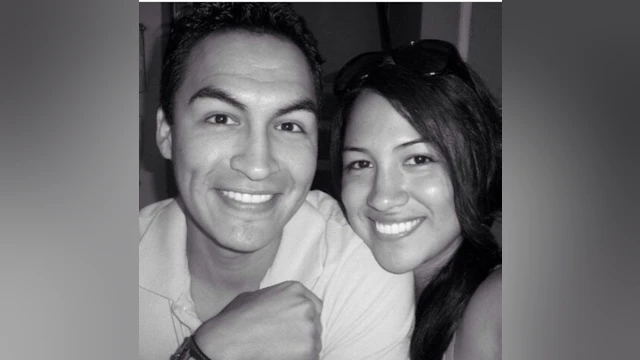Sept. 18, 2018 - Have you ever been told, “I can imagine how you feel,” or, “I understand,” yet you are certain that the person speaking can’t possibly fathom what you’re going through?
Four and a half years ago, my only brother took his own life. The year after my brother passed away, I felt that sentiment more strongly than I ever had before. It’s also when I lost my will to live, and wanted nothing more than to be with him in death.
I have a hard time speaking those words, not because of any shame others might feel around this topic, but because the thought itself pains me. I won’t say he committed suicide; the word committed makes it sound as though he is guilty of a crime. I also won’t say he killed himself. This wasn’t a violent murder, and at least for me, “he passed away” feels gentler.
But the language doesn’t change the reality: his life ended by suicide.
When someone takes their own life, people often seek answers: Were there any warning signs? Was he depressed, or hiding his depression? Was he taking drugs, or an alcoholic?
Each inquiry feels like a dagger. I feel pressured to have the “right” answers, so that I may convince everyone that my brother’s death was expected, because apparently, the expectation is supposed to soften the blow.
My brother’s suicide blindsided me and my family.
As much as we may care, love and support someone, we are not personally experiencing what a person with suicidal ideations feels.
After a suicide, people occasionally place judgment on the person who took their life. They ask things like, “What about their family?”
What they should be asking is, “What about the person who was experiencing so much pain that they felt the need to end their life?”
Frankly, not everyone is compassionate. Not everyone has experienced tragedy. I wish more people would realize suicidal depression should be discussed with the same approach as physical diseases such as cancer: it can come unexpectedly and unfairly poisons healthy bodies. The mind takes control, and while treatment is available, there is still no guarantee these resources will prove ultimately helpful.
For a long while after my brother’s passing, I believed that I could love him back to life, that God would realize both he and my brother made a mistake and would send him back. My brother would appear one day when I least expected it, run up behind me, and pull my ear. He’d say my name and my heart would drop to the soles of my feet.
I’d be so elated that I’d forget he had even left me. I’d bury my face in his chest and hold him so tightly that he could never try to take his life again.
Of course, this never happened. Instead, I was left with pain that felt like ocean waves: sometimes these waves of grief would be so massive, I’d get knocked over; other times, they would be small ripples that followed me throughout the day.
I understood that the mind, like the body, needs medical attention after trauma. I began therapy two weeks after my brother’s passing. I was still in a state of shock, consumed with guilt, and did not trust myself. I needed an outlet, and some relief.
I was running, biking, hiking and spending time with friends who love me and were concerned about my stability. I was prescribed anxiety pills to ease the frequent attacks I was having.
But I felt far beyond broken.
My soul ached. The entire world around me felt as though it had changed. Although my “progress” was applauded and praised, I constantly felt angry that I had to keep living. Every night, I went to bed begging God to take me the following day. Every morning as I awoke, I felt disappointed and angry to still be alive.
I didn’t care how selfish I may have seemed to others. I could not fathom another day without my brother.
Weekly therapy sessions, daily words of affirmation and anti-depressant medication began to help to some degree, but didn’t completely alleviate my grief. After my hero, my idol, my brother had taken his life, suicide suddenly seemed tangible.
There were many reasons for me to stay. People told me to be strong, stay positive, and think about my daughter. Although these words were meant to be encouraging, they felt dismissive, as though I was being ignored.
What would have helped me would have been for someone to simply say, “I’m sorry this is happening.”
People who are hurting need to be acknowledged and validated, not condemned or ostracized for the way they are feeling.
At each therapy session, I was asked if I felt safe and whether I had suicidal thoughts. I always said I didn’t, but I was still provided with the National Suicide Prevention Lifeline, along with the instruction to call my therapist if I had any thoughts of harming myself.
After a couple years of therapy, I began to feel okay. Neither grief nor acceptance has a deadline. Time is all we have. So, I continue to utilize my time, to nurture and love myself every day.
It is all, admittedly, a work in progress.
I miss my brother deeply. My soul still longs for him daily.
But I continue to live each day for him. I live with a sense of pride in all that I do -- for my brother, for myself and for my family.
